Artificial Intelligence Jobs: Best Careers& Salaries in 2025
Kickstarting a career in artificial intelligence jobs means more than just coding—it’s about landing roles that match your skills, whether you’re eyeing entry‑level AI engineer jobs, diving into artificial intelligence jobs like red team jobs, working remotely from home, or leveraging your healthcare background in AI nursing roles. In this guide, I’ll show you where AI jobs are booming in the U.S., U.K., Canada (and beyond), what AI specialist and consultant roles pay, how to break in through artificial intelligence jobs training, and what it really takes for artificial intelligence jobs in research or even artificial general intelligence careers.. By the end, you’ll know exactly which path fits you, how much you can expect to earn, and which platforms (like Coursera, LinkedIn Premium, and DataCamp) can help you get there—fast.
Table of Contents
Why Pursue a Career in Artificial Intelligence? The Growing Demand and High Salaries
Artificial Intelligence Jobs are booming worldwide (obviously). In fact, AI job postings in the U.S. jumped 32% year-over-year in 2024, with median salaries around $160,000. Workers with AI skills command a major pay premium – one report found AI-skilled employees earn about 56% more than similar workers without AI skills. With everyone and their mother planning to use more AI in literally every aspect and revenue growth 3× higher in AI-exposed sectors, it’s clear demand for Artificial Intelligence Jobs talent is surging and it shows no sign of stopping anytime soon.
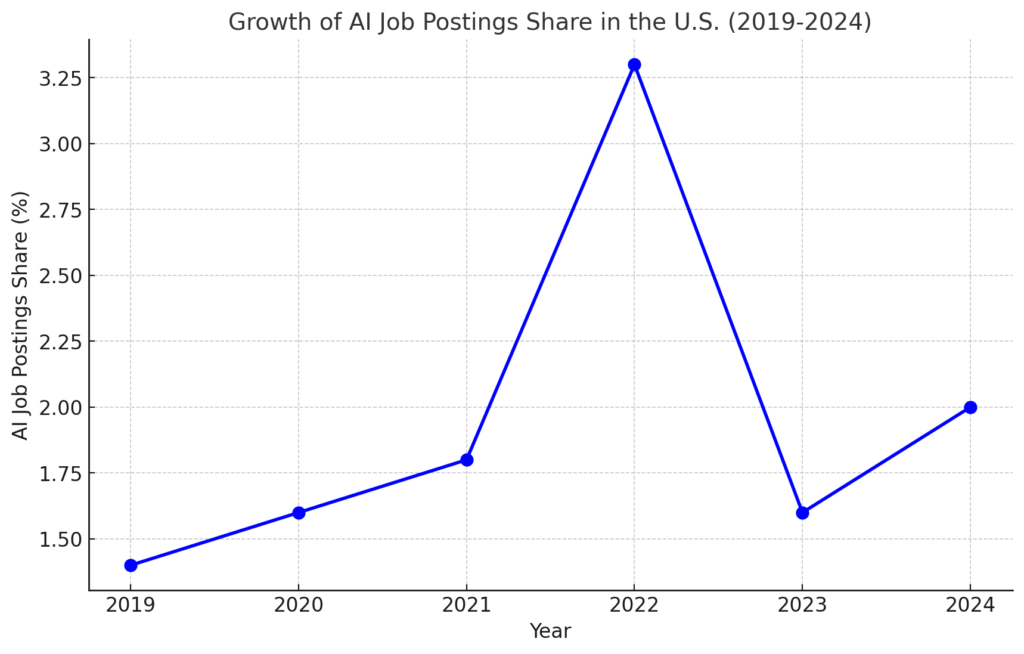
You can take my word( but you don’t have to) because I’ve seen this first-hand: colleagues in specially tech and finance are getting into AI roles to take advantage of the sweet money and exciting projects. For example, as companies race to adopt generative AI and machine learning, AI roles are emerging in every industry – from Silicon Valley to London to Toronto. Even traditional fields like healthcare and agriculture are using AI to boost efficiency. This growth means Artificial intelligence jobs are generally high-paying and in demand, making it a great field to consider for your next career move.
Trending Artificial Intelligence Jobs
Artificial intelligence jobs covers a broad field. Below are several common Artificial intelligence jobs each with different skills and responsibilities:
- Artificial Intelligence Engineer Jobs: These specialists build and deploy AI systems. They design machine learning models and integrate them into products or services. AI Engineers typically have strong software and math backgrounds (duh) and they work in industries like tech, finance, healthcare, and robotics. (For example, an AI Engineer might create a computer vision system for a self-driving car.)
- Machine Learning Engineer: Often used interchangeably with Artificial intelligence Engineer, ML Engineers focus specifically on training and optimizing predictive models. They write code to handle large datasets and fine-tune algorithms. Large tech firms and startups alike hire ML Engineers to improve recommendation engines, fraud detection, and more.
- Data Scientist / AI Specialist: Data Scientists analyze data and build models which sometimes overlap with Artificial Intelligence engineering Jobs . Companies call these roles “AI Specialist” or “Data Science Engineer.” They might work on Natural Language Processing(NLP) projects or data-driven insights. Data Scientists with AI expertise can expect base pay similar to Artificial intelligence Engineers (around $118K in the U.S.).
AI isn’t just revolutionizing business—it’s creeping into some delightfully unexpected corners of our lives. I even put 7 AI baby name generators to the test to see if they could do better than stressed-out parents. Spoiler: some were weird, some were brilliant. Read the full review here. - Artificial intelligence Researcher jobs: These professionals often have advanced degrees and focus on cutting-edge AI research. They might work at universities or research labs (including industry labs like Google DeepMind or OpenAI) pushing the boundaries toward “artificial general intelligence” (AGI). While AGI jobs (focused on human-level AI) are rare, related research roles are available at AI labs and think-tanks. Currently, most AI research positions still focus on narrower machine learning problems. True AGI roles don’t really exist yet, since AGI itself is still theoretical(Maybe you can change that?).
- Artificial intelligence Consultant / Specialist jobs: These experts advise companies on AI strategy and implementation. They bridge business and technology – helping organizations choose the right AI tools, oversee projects, or restructure teams for AI. For example, an AI Consultant might work at a tech consultancy or internally to streamline how a hospital uses AI imaging software. In the U.S., AI consultants earn salaries on par with engineers (Glassdoor reports ~$129K median). In the UK/Canada, salaries are proportionally similar when adjusted for currency and local market.
- Artificial intelligence Red Team jobs: A newer niche is Artificial Intelligence Jobs in cybersecurity (think of cool faceless cyber ninjas) – cybersecurity experts who test AI systems for vulnerabilities. Major tech companies like Google and Microsoft have dedicated AI Red Teams. These teams “think like hackers” to probe AI systems for safety issues. For example, one Microsoft engineer explains that AI Red Teams combine cybersec skills with ML knowledge to protect against malicious use of AI. If you have a background in security or network engineering, you could specialize in this area. (These roles tend to pay very well given the high expertise required – often matching or exceeding standard AI engineering salaries.)
- Artificial intelligence Nursing jobs: AI is transforming healthcare, leading to new roles for medical professionals. Nurses and clinicians with AI training can become “health informatics” specialists or clinical AI consultants. For instance, an “AI Nurse” might use AI tools for patient monitoring or administration. While pure “Artificial intelligence nursing jobs” are still emerging, healthcare employers do hire people who combine clinical experience with AI skills to implement AI systems in hospitals. These roles tend to pay well (often in the same range as tech AI jobs) and allow professionals in the U.S., UK, Canada and elsewhere to work on meaningful projects improving patient care.
- Remote and Work-from-Home Artificial intelligence Jobs: Many Artificial Intelligence Jobs can be done remotely(which makes sense). Since AI work is largely computer-based, companies globally hire remotely. For example, a data scientist or ML engineer can live in Toronto or Manchester and work for a California company. The trend toward remote AI jobs has accelerated – job postings explicitly mention remote or hybrid work. In my experience, using platforms like LinkedIn or remote-job sites turns up many “AI Engineer (Remote)” or “Data Scientist (Work from Home)” listings. These provide flexibility especially valuable to workers in different time zones or countries.
Each of these paths has different entry requirements. For example, entry-level AI roles often require a bachelor’s in computer science, math or related field, plus projects/portfolio. I’ll add a separate section talking solely about AI entry level jobs below.Senior roles may demand a Master’s or PhD. Overall, my advice is to pick an area that matches your background: software developers lean toward engineering roles, researchers towards lab jobs, healthcare pros towards clinical AI roles, etc. No matter which path, expect competitive salaries and opportunities in tech hubs (e.g. California, New York, London, Toronto, Berlin) as well as anywhere with a tech scene.
What is the current demand and Salary in Artificial intelligence jobs?
Artificial intelligence jobs are among the highest-paying tech roles today. For comparison:
| Role | Avg. Salary (US) | Top Locations |
|---|---|---|
| AI Engineer | ~$134,000 | USA (San Francisco, New York); UK (London); Canada (Toronto) |
| Machine Learning Engineer | ~$123,000 | USA (Seattle, Boston); UK; Canada |
| Data Scientist / AI Specialist | ~$118,000 | USA (New York, SF); UK; Canada |
| AI Consultant/Specialist | ~$129,000 (Glassdoor) | USA (NYC, Chicago); UK (London); Canada |
| AI Researcher | ~$100,000 | USA (Cambridge MA, NYC, SF); UK (Cambridge); Canada (Montreal) |
Source: Glassdoor and industry reports. (These are rough medians; actual salaries vary by experience, skills, and city.)
Beyond salary, job growth in artificial Intelligence Jobs is spectacular. The U.S. Bureau of Labor Statistics projects about 26% growth for AI-related occupations (like computer and information research scientists) from 2023 to 2033 – far faster than the ~4% average for all fields. Another analysis found artificial Intelligence Jobs postings jumped 32% in 2024, and that wages in AI fields are rising twice as fast as in other industries. In short, the data show many more artificial Intelligence Jobs each year and employers are paying a premium for qualified AI talent.
Of course, salaries vary globally: London might pay ~£50k–£70k for an AI Engineer (depending on experience), while Toronto or Vancouver roles might offer CAD $100k+ in tech firms. But generally, AI skills command top-tier pay everywhere. If you’re wondering about remote or global roles, many companies will adjust offers to local markets, but high-demand cities (Bay Area, London, NYC, Toronto) tend to be on the higher end of these ranges.
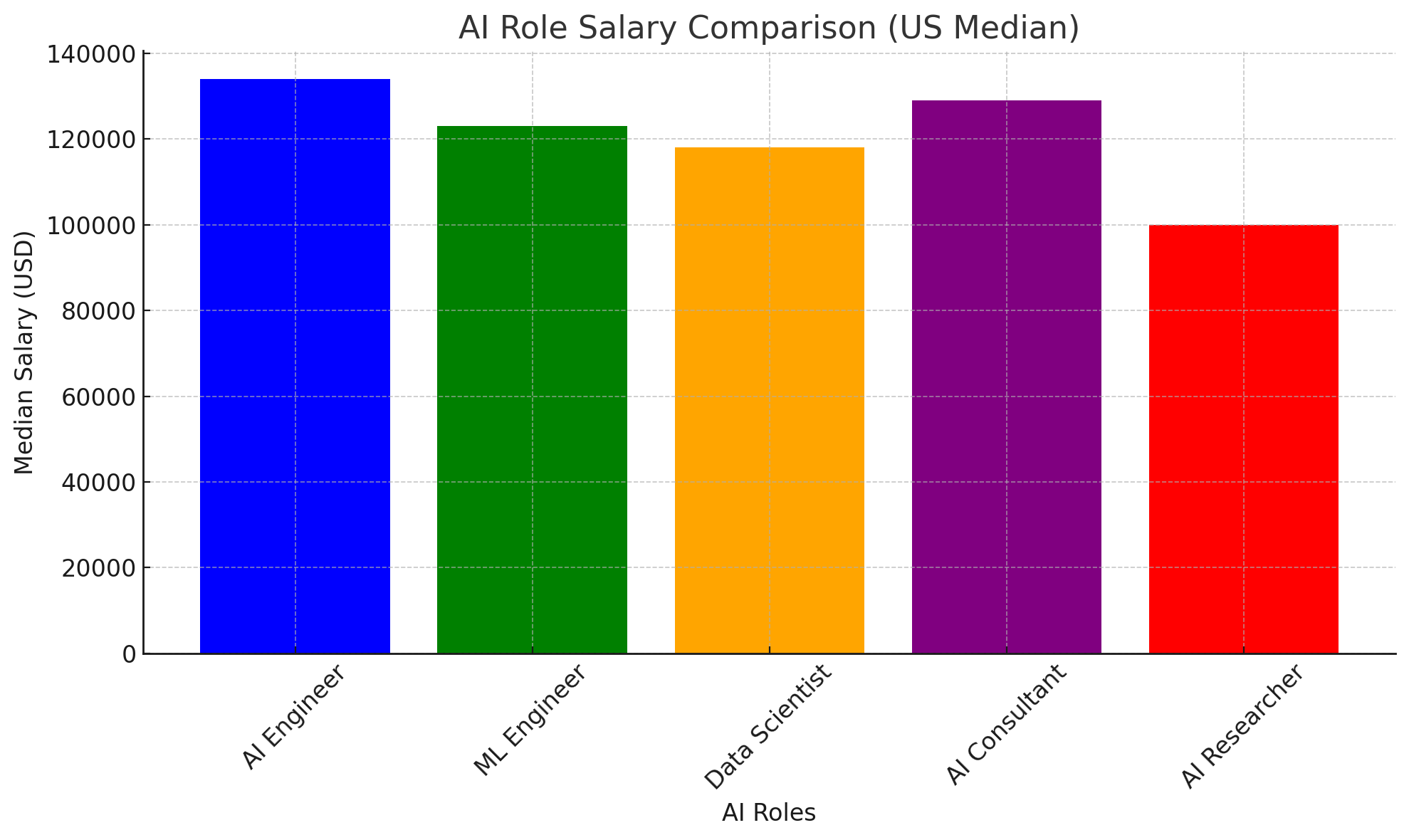
What qualifications do you need to land Artificial Intelligence Jobs?
Before you feel overwhelmed by the many steps it takes to break into the AI sector, let me share an inspiring story.
I came across the story of Kennedy, a young tech professional who began learning AI through Coursera’s online courses. Kennedy applied those skills at high-profile companies like NVIDIA and a Kenyan bank. His journey proves that even if you start in a different country or industry, building AI skills can open doors to global opportunities in the artificial intelligence jobs field.
Similarly, imagine Emma, a cybersecurity specialist who learns machine learning (ML) online and lands a role on an AI Red Team at a tech firm. These success stories are becoming more common. Online learning and networking are helping people from diverse backgrounds transition into AI roles every day.
How to Break Into AI Jobs:
Landing artificial intelligence jobs, especially in fields like machine learning or AI research, usually requires demonstrating specific skills.. Here are some key requirements:
Programming: Knowledge of languages like Python or R
Statistics: Strong understanding of data analysis and algorithms
Machine Learning Frameworks: Familiarity with TensorFlow, PyTorch, or similar tools
In addition to these technical skills, soft skills like problem-solving and communication are crucial—especially for consultant or data roles.
Tip: Start with what interests you the most and stick with it. As you continue learning and building projects, you’ll start seeing results and gain confidence to dive deeper into more complex tasks.
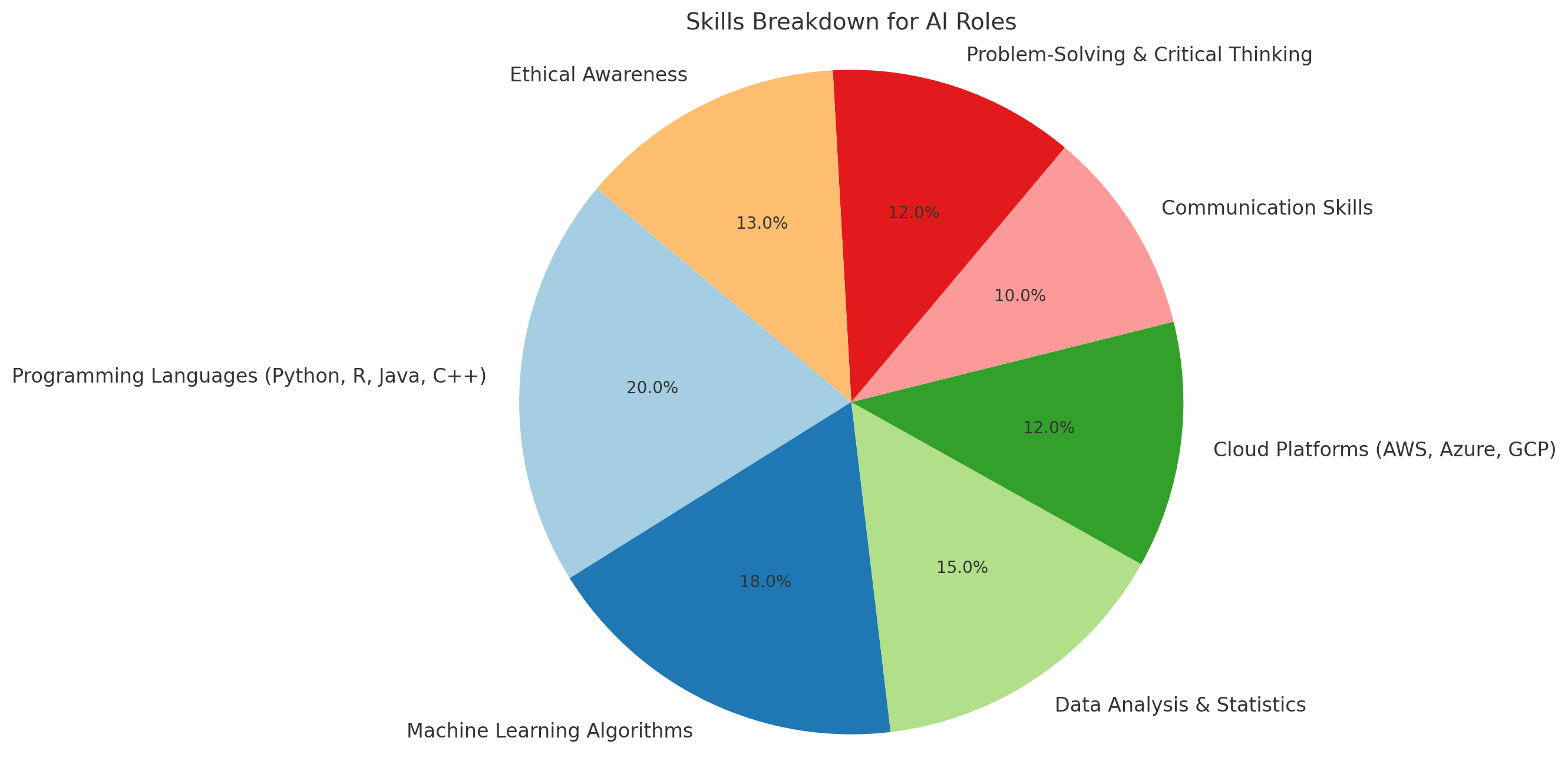
Entry-Level Roles: Don’t let the big “Artificial intelligence jobs” scare you or make you insecure if you’re a beginner.We all start somewhere.Many entry-level artificial intelligence jobs (like “Junior Data Scientist” or “AI Support Engineer”) exist for those with limited experience. Employers often look for a solid portfolio or relevant coursework if you lack years of experience.Which means you gotta start learning if you wanna start earning. For example:
- You might start as a Data Analyst or Software Engineer and pivot by showcasing machine learning projects on GitHub.
- I took an Introduction to Machine Learning course on Coursera to build a portfolio, and it helped when I applied for junior ML roles.
- Another route is specialized certifications or nano-degree programs that teach AI fundamentals.
Courses and Platforms: Online courses and bootcamps are extremely popular for breaking into artificial intelligence jobs. Coursera’s AI and Deep Learning specializations (by Stanford or deeplearning.ai) are top picks; many professionals credit these for building their skills. DataCamp (affiliate link) is another great resource, offering hands-on coding exercises in data science and ML. Personally, I’ve enrolled in [Coursera’s Machine Learning Specialization (affiliate link)], which taught me about neural networks and improved my resume. (Kennedy’s story above also highlights using Coursera courses to advance.)
Feeling fatigue after learning all that work talk?If you need to unwind—you might find our guide on 7 ChatGPT uncensored alternatives that actually work in 2025 useful.
Certifications and Degrees: While not strictly necessary, advanced degrees (MS/PhD) can open doors for research-oriented roles in artificial intelligence jobs. The Coursera salary guide noted ~17% of AI pros hold a Master’s, which can help negotiate higher pay. If you can invest the time, a specialized Master’s (e.g. in AI, Data Science, Robotics) or certificates like Google’s Professional Machine Learning Engineer can boost your candidacy.
Job Platforms & Networking: Now that you got the skills, how to find artificial intelligence jobs?Although the base version works too, I recommend using LinkedIn Premium – it offers learning resources and job insights that the base version lack. With Premium, you get access to LinkedIn Learning courses on AI, plus “Jobs to Apply” suggestions. LinkedIn itself is invaluable for networking: join AI groups, follow companies like Microsoft AI, and reach out to people in roles you want. Other sites: Indeed and Glassdoor list AI jobs globally; niche boards like AIJobs.com can be useful; and of course company career pages (e.g. OpenAI, DeepMind, tech giants).
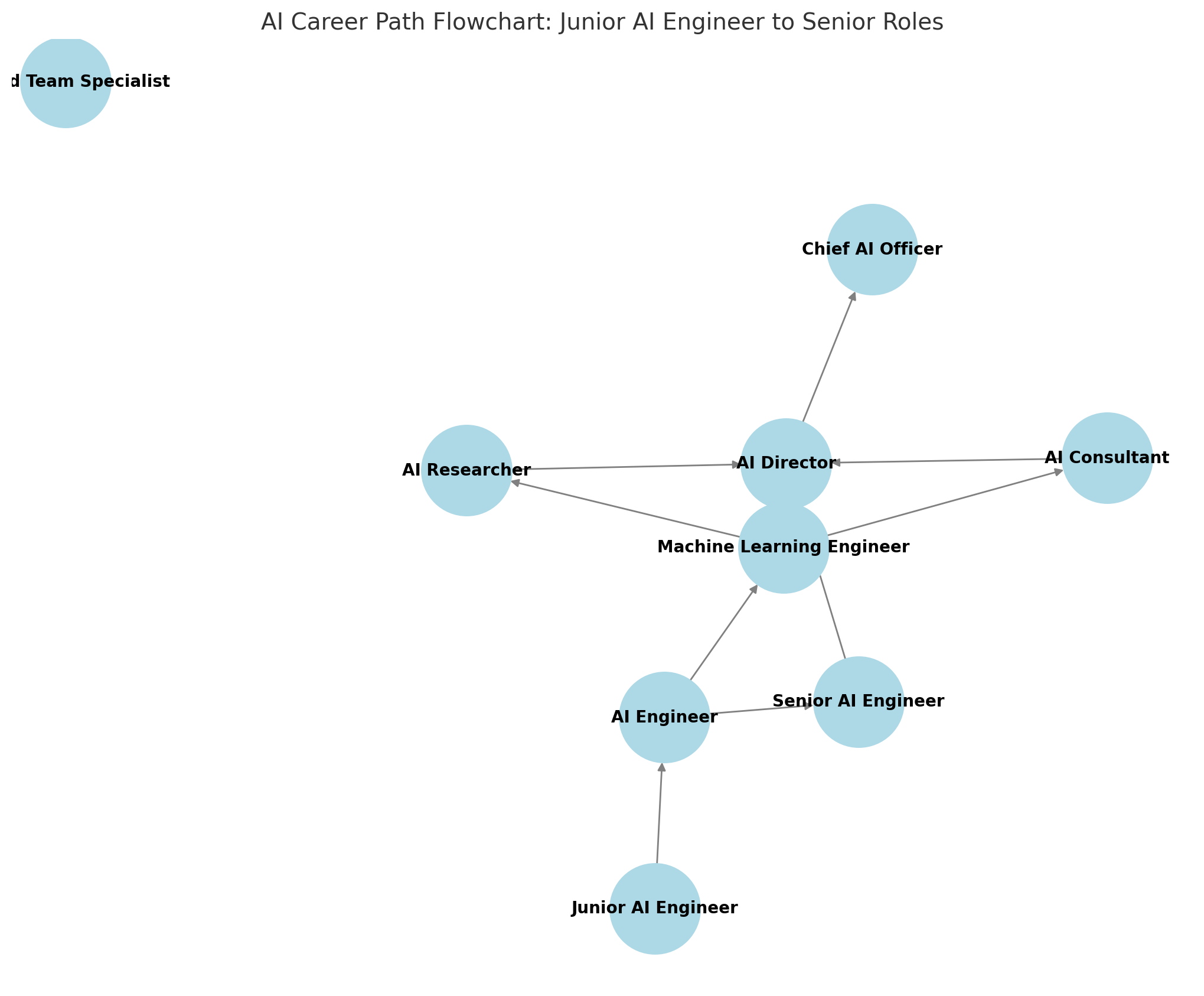
Practical Experience: This is your golden ticket.You don’t even need any degree or certification if you got some projects to show.After all said and done what you can do matters the most above all else.Employers love real projects when it comes to artificial intelligence jobs. Consider internships or Kaggle competitions to practice ML models. For instance, one of my friends participated in a time-series forecasting challenge on Kaggle, then described it in interviews; it showed she can apply AI in practice. DataCamp and Coursera often have capstone projects you can put on your résumé. The key is to show that you’ve built or used AI systems.
Ongoing Learning: AI is fast-evolving, so learning never stops. Keep up with new tools (like learning PyTorch or prompt engineering) and explore a variety of AI assistants, including less restricted platforms. Here’s a list of 7 ChatGPT uncensored alternatives that many professionals are testing in 2025 for a less professional and more casual and enjoyable learning situation. Many AI professionals subscribe to newsletters, follow AI podcasts, or contribute to open-source projects. This continuous learning is actually a big part of a career in artificial intelligence jobs – technology changes rapidly, so being a lifelong learner is itself a “soft skill” that many employers value.
How to navigate: After building your skills, it may help to track your progress with a chart or roadmap for your journey into artificial intelligence jobs. For example, you could create a bar chart of “Courses Completed vs. Months” or “Competitions Entered vs. Score” to visualize growth. (This is more a personal dashboard idea than a user chart – but speaking from experience tracking progress is motivating!)
FAQs
Q: What are some entry-level artificial intelligence jobs?
Entry-level artificial intelligence jobs have titles like ‘Junior Data Scientist,’ ‘Machine Learning Intern,’ or ‘AI Support Engineer’. These roles typically require a bachelor’s degree and some hands-on projects, such as class projects or internships.
A typical entry-level AI role may involve tasks like:
- Data cleaning
- Writing simple machine learning models
- Supporting senior engineers
Employers expect candidates to have knowledge of programming (such as Python) and basic machine learning concepts. If you’re transitioning into AI from a related role (like software engineer or data analyst), highlight any AI-related coursework or projects on your resume.
To break into AI, consider:
- Taking an online specialization (like Coursera’s AI courses)
- Building a portfolio of small projects
As you gain experience, you can gradually work your way into more complex AI tasks and projects.
Q: What is an artificial intelligence red team job?
AI Red Team roles are quickly becoming one of the most trending and sought-after positions in artificial intelligence jobs. These roles focus on AI system security, similar to a “white-hat hacker” role in cybersecurity.
Red Team members intentionally attempt to:
- Break or trick AI models
- Identify vulnerabilities and flaws before malicious actors can exploit them
For example, Google and Microsoft employ dedicated AI Red Teams to simulate attacks on language models or computer vision systems, testing their safety and robustness.
These positions typically require:
- Experience in cybersecurity
- Strong knowledge of AI and machine learning (ML)
If you have a background in security engineering and are interested in AI, this niche role may be a great opportunity. As companies increasingly realize the importance of AI safety, the demand for skilled Red Team members is growing quickly.
Q: What are artificial intelligence consultant or specialist jobs?
Artificial intelligence jobs in consulting or specialist roles involve advising businesses on how to effectively use AI in their operations.
These roles are high-paying, with salaries ranging from $110K to $140K, and may include additional bonuses. To become an AI Consultant, many professionals start their careers as engineers or analysts before transitioning into advisory roles as they gain experience.
To increase your chances of landing a consultant position, consider:
- Earning certifications such as TensorFlow Developer or IBM AI Engineer
- Developing soft skills like presentations and project management
These steps will help you move into a high-demand role where you can help businesses navigate their AI needs.
Q: Are there artificial intelligence nursing or healthcare jobs?
Yes, AI is transforming healthcare, and there are emerging roles for nurses and clinicians. Examples include:
- Nurse Informaticists: These professionals implement AI-powered patient monitoring systems to enhance healthcare delivery.
- Clinical AI Specialists: They train healthcare staff on using AI tools and medical technologies.
While the title “AI Nurse” isn’t common yet, nurses can upskill by taking courses in data science and apply their knowledge to AI projects within hospitals. Some healthcare organizations even hire “AI Coordinators” to bridge the gap between technology and clinical teams.
Salaries for AI-related healthcare roles often match or exceed typical nurse salaries, ranging from $80K to $120K in the U.S., depending on location and experience. As AI continues to integrate into healthcare, these roles will continue to grow in demand.
Q: Are there artificial intelligence remote or work-from-home jobs?
Absolutely! One of the main benefits of artificial intelligence jobs is their flexibility, as many positions are remote-friendly. Since AI development is primarily computer-based, companies around the world offer remote opportunities.
Job listings like “Remote AI Engineer” or “Work-from-Home Data Scientist” are common. I know people in Canada working remotely for Silicon Valley startups on AI projects.
To find remote AI roles:
- Use filters on job sites like LinkedIn or Indeed and specify “remote.”
- Explore freelancing or contract positions on platforms like Upwork or Freelancer.
While pay for remote roles may vary depending on your location, these jobs often offer the same benefits as in-office positions. Excellent communication and collaboration skills are crucial for succeeding in remote AI roles.
Q: How can I become an AI engineer?
Becoming an AI engineer requires a strong foundation in coding and mathematics, which is essential for artificial intelligence jobs. Most AI engineers begin by earning a bachelor’s degree in computer science or engineering. After that, they focus on AI/ML topics, such as neural networks and data structures.
Key Steps to Becoming an AI Engineer:
- Earn a Relevant Degree: Start with a bachelor’s in computer science, engineering, or a related field.
- Specialize in AI/ML: After your degree, dive deep into AI and machine learning topics. You can take specialized programs like Coursera’s AI or Machine Learning Specializations (affiliate link) to learn essential concepts.
- Build Projects: The most crucial step is hands-on experience. Start by implementing simple machine learning models. You can also contribute to open-source AI libraries or pursue internships to gain practical knowledge.
- Start Small: If you’re early in your career, look for entry-level roles like “Junior AI Engineer” or “ML Engineer.” These positions will help you get your foot in the door, and you can specialize as you gain more experience.
Salary Insights: According to the Coursera survey, AI engineers in the U.S. earn a median annual salary of approximately $145K, reflecting the high demand for these skills.
By following these steps and continuing to build your portfolio, you can set yourself on the path to becoming an AI engineer..
Sources: Industry reports and data (Veritone, PwC, Coursera) and market surveys were used to compile statistics above.
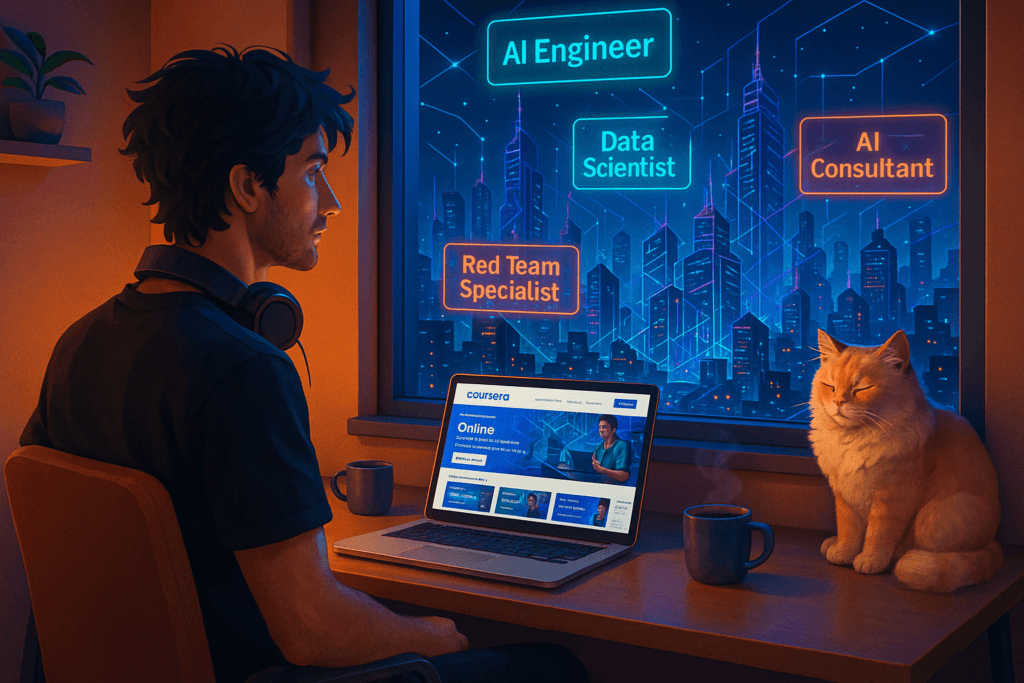
Pingback: Gramhir.pro AI: Among the 5 Most Powerful Image Generators